Filter by

Trademark and unfair competition conflicts : historical-comparative, doctrina…
With the rise of internet marketing and e-commerce around the world, international and cross-border conflicts in trademark and unfair competition law have become increasingly important. In this groundbreaking work, Tim Dornis - who, in addition to his scholarly pursuits, has worked as an attorney, a public prosecutor, and a judge, giving him experience in both civil and common-law jurisdictions…
- Edition
- -
- ISBN/ISSN
- 9781316651285
- Collation
- lii, 644p. : ill.
- Series Title
- -
- Call Number
- 346.0488 DOR t
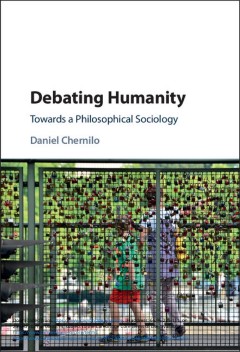
Debating humanity : towards a philosophical sociology
Debating Humanity explores sociological and philosophical efforts to delineate key features of humanity that identify us as members of the human species. After challenging the normative contradictions of contemporary posthumanism, this book goes back to the foundational debate on humanism between Jean-Paul Sartre and Martin Heidegger in the 1940s and then re-assesses the implicit and explicit a…
- Edition
- -
- ISBN/ISSN
- 9781316416303
- Collation
- vii, 262p. : ill.
- Series Title
- -
- Call Number
- 128 CHE d
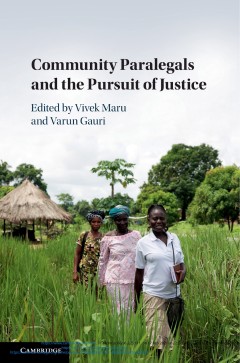
Community paralegals and the pursuit of justice
The United Nations estimates that four billion people worldwide live outside the protection of the law. These people can be driven from their land, intimidated by violence, and excluded from society. This book is about community paralegals - sometimes called barefoot lawyers - who demystify law and empower people to advocate for themselves. These paralegals date back to 1950s South Africa and a…
- Edition
- -
- ISBN/ISSN
- 9781316671801
- Collation
- xv, 269p. : ill.
- Series Title
- -
- Call Number
- 362.586 COM c
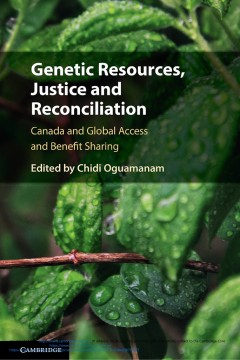
Genetic resources, justice and reconciliation : Canada and global access and …
When the oral history of a medicinal plant as a genetic resource is used to develop a blockbuster drug, how is the contribution of indigenous peoples recognized in research and commercialization? What other ethical, legal, and policy issues come into play? Is it accurate for countries to self-identify as users or providers of genetic resources? This edited collection, which focuses on Canada, i…
- Edition
- -
- ISBN/ISSN
- 9781108557122
- Collation
- xix, 279p. : ill.
- Series Title
- -
- Call Number
- 346.710469534 GEN g
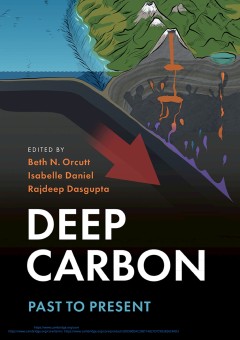
Deep carbon : past to present
Carbon is one of the most important elements of our planet, and ninety percent of it resides inside Earth's interior. This book summarizes ten years of research by scientists involved in the Deep Carbon Observatory, a global community of 1200 scientists. It is a comprehensive guide to carbon inside Earth, including its quantities, movements, forms, origins, changes over time, and impact on plan…
- Edition
- -
- ISBN/ISSN
- 9781108677950
- Collation
- xv, 669p. : ill.
- Series Title
- -
- Call Number
- 549.27 DEE d
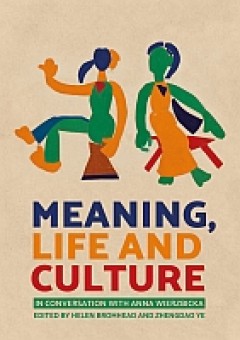
Meaning, life and culture : in conversation with Anna Wierzbicka
This book is dedicated to Anna Wierzbicka, one of the most influential and innovative linguists of her generation. Her work spans a number of disciplines, including anthropology, cultural psychology, cognitive science, philosophy and religious studies, as well as her home base of linguistics. She is best known for the Natural Semantic Metalanguage (NSM) approach to meaning—a versatile tool fo…
- Edition
- -
- ISBN/ISSN
- 9781760463939
- Collation
- XVIII, 515 p.
- Series Title
- -
- Call Number
- 801.4 MEA m

Innovations in quantitative risk management
Quantitative models are omnipresent –but often controversially discussed– in todays risk management practice. New regulations, innovative financial products, and advances in valuation techniques provide a continuous flow of challenging problems for financial engineers and risk managers alike. Designing a sound stochastic model requires finding a careful balance between parsimonious mode…
- Edition
- -
- ISBN/ISSN
- 9783319091143
- Collation
- xi, 438p.: ill.
- Series Title
- -
- Call Number
- 658.155 INN i
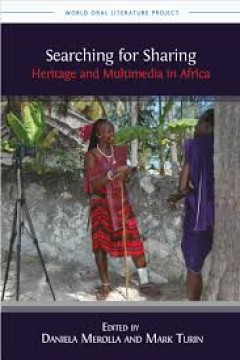
Searching for sharing: heritage and multimedia in Africa
In a world where new technologies are being developed at a dizzying pace, how can we best approach oral genres that represent heritage? Taking an innovative and interdisciplinary approach, this volume explores the idea of sharing as a model to construct and disseminate the knowledge of literary heritage with the people who are represented by and in it. Expert contributors interweave sociologica…
- Edition
- -
- ISBN/ISSN
- 9781783743216
- Collation
- 158 p.; 23 cm.
- Series Title
- -
- Call Number
- 302.9 SEA s
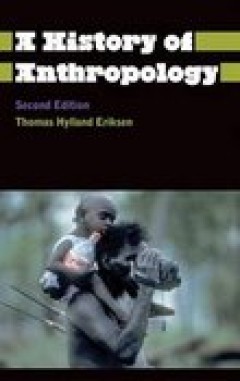
A History of anthropology. second Edition
This is a thoroughly updated and revised edition of a popular classic of modern anthropology. Avoiding geographical bias, the authors provide summaries of ‘Enlightenment’, ‘Romantic’ and ‘Victorian’ anthropology, from the cultural theories of Morgan and Taylor to the often neglected contributions of German scholars. The ambiguous relationship between anthropology and national cultur…
- Edition
- 2nd edition
- ISBN/ISSN
- 9780745333533
- Collation
- 264 p.; 22 cm.
- Series Title
- Anthropology, Culture and Society
- Call Number
- 306.4 ERI h
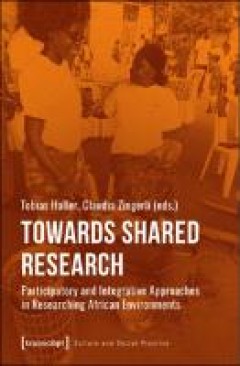
Toward shared Research: participatory and integrative approach in researching…
Intercultural, interdisciplinary, and transdisciplinary research interfaces confront researchers with considerable challenges. Towards Shared Research portrays how scholars from different disciplinary and geographical origins and at various academic career stages strive for a more inclusive and better understanding of knowledge about African environments. The book is addressed to researchers, f…
- Edition
- -
- ISBN/ISSN
- 9783839451502
- Collation
- 186p.: ill.
- Series Title
- -
- Call Number
- 630.967 TOW t
 Computer Science, Information & General Works
Computer Science, Information & General Works  Philosophy & Psychology
Philosophy & Psychology  Religion
Religion  Social Sciences
Social Sciences  Language
Language  Pure Science
Pure Science  Applied Sciences
Applied Sciences  Art & Recreation
Art & Recreation  Literature
Literature  History & Geography
History & Geography